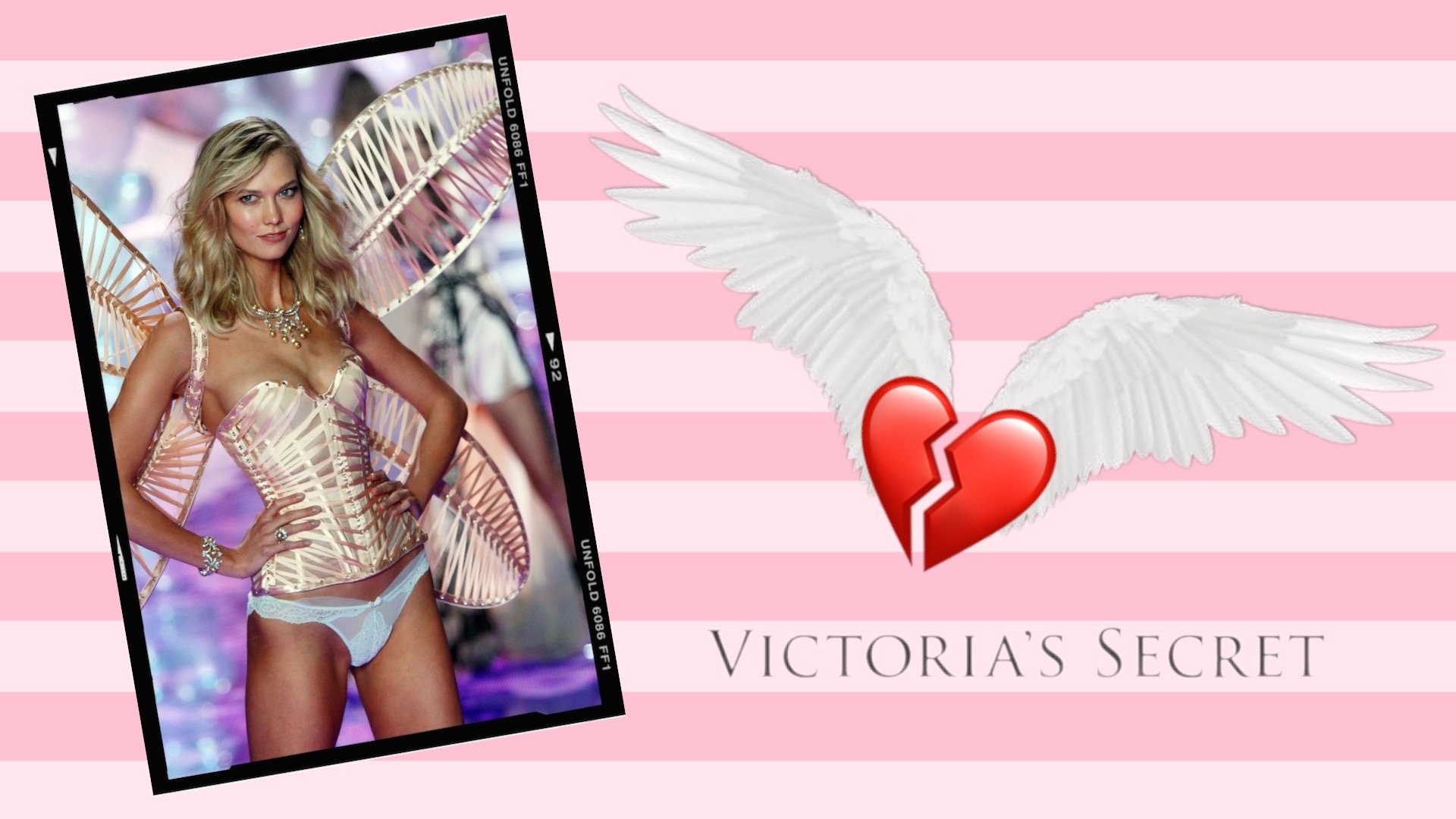Victoria's Secret: The Male Fantasy
Graphic by Molly Van Gorp.
It is 2011, and you are one of the 10.3 million viewers watching The Victoria’s Secret Fashion Show. Alessandria Ambrosio, Adriana Lima, Chanel Iman and Miranda Kerr strut across the runway, modeling the company’s newest lingerie and sporting wings that weigh from 15 to 20 pounds. One of these Victoria’s Secret Angels – the select models who hold a coveted contract with Victoria’s Secret – will wear the fantasy bra worth millions of dollars. Without denying that a majority of these women are lucky in the genetic pool, it’s undeniable that months of preparation have gone into presenting themselves to the critical eye of their audience. When questioned about the show being empowering for women, former Victoria’s Secret Angel Karlie Kloss stated that “there's something really powerful about a woman who owns her sexuality and is in charge. A show like this celebrates that and allows all of us to be the best versions of ourselves. Whether it's wearing heels, make-up, or a beautiful piece of lingerie — if you are in control and empowered by yourself, it's sexy.”
What used to be the largest lingerie retailer in the United States is now a brand name riddled with accusations of fatphobia, transphobia and ageism. Victoria’s Secret is attempting to redefine its influence by featuring models with a more diverse range of body types and skin tones in their advertisements. As they do so, the fantasy of a slim, tall woman with a 32B-cup bra size disintegrates – the fantasy that the company itself created.
In 1982, Leslie H. Wexner, the former CEO of parent brand L Brand, bought Victoria’s Secret. The brand was originally marketed as a place where men could buy lingerie for their wives and girlfriends without feeling ashamed. Victoria’s Secret advertising has always been targeted at men, prioritizing the male gaze over the needs of the actual consumers. Thus, rather than focus on comfort, Victoria’s Secret focused on aesthetics and ignored the wearer. They created an idealized “fantasy woman” who was skinny, tall and white. For most women, this fantasy remained unachievable.
The breakdown of the company is often attributed to the rise of the #MeToo movement. Leslie “Les” Wexner was closely linked to Jeffery Epstein who acted as his money manager and attorney. Epstein’s money, his private jet, which he allegedly used to fly underage girls, and his mansion on the Upper East Side all came from Wexner’s wealth. In Angels and Demons, a 2021 documentary about the history and legacy of Victoria’s Secret, Epstein is revealed to have posed as a Victoria’s Secret recruiter to sexually assault a woman named Alicia Arden in 1997. Although Wexner originally stated in 2003 that Epstein was “very smart with a combination of excellent judgment and unusually high standards,” he later stated in 2019, twelve years after firing Epstein, “I am embarrassed that, like so many others, I was deceived by Mr. Epstein.” Wexner resigned from L Brands in 2020 after the controversy that arose from his relationship with Epstein. Victoria’s Secret had built a fantasy image of the company being a place that could empower women, while it was actually using its name to abuse them behind the scenes.
With the rise of brands like Aerie and Savage X Fenty that represent a larger array of women, the death of the Victoria’s Secret fantasy is welcomed. These brands attempt to make women feel better represented and be at the core of the products that they are buying. As for the Victoria’s Secret Angel title, it has been replaced by the VS Collective: a group of 10 female celebrities who partnered with the company. In a recent ad campaign, the women were pictured next to the words “we see you” and “we’ve changed.” With Victoria Secret releasing more diverse advertising, consumers question whether the brand has caused too much damage, or if it’s capable of reinventing itself. However, when pondering this question, we must consider the facts: men ultimately remain at the helm of the brand’s leadership, and women fail to be part of those creating the new fantasy.

